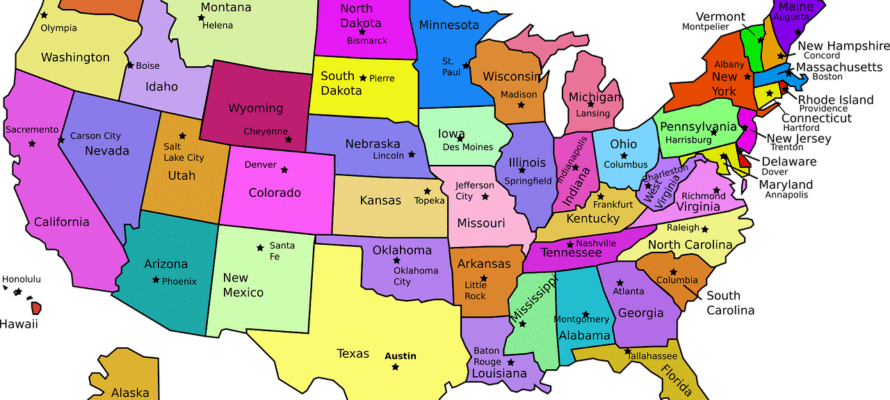
The Financial Power of Attorney
When I talk with clients about estate planning, I often need to start with the basics, giving them a good solid foundation. I am not sure I have done that yet on my blogs, so I am excited to do a four part series where I talk about the basic, foundational documents of every estate plan. Hopefully this will set a good foundation for you.
In my humble opinion, any estate plan should have these four basic, fundamental, foundational documents:
- A Will
- A Financial Power of Attorney
- A Medical Power of Attorney
- A Living Will (also called an Advanced Directive)
This blog will talk about a Financial Power of Attorney: what is a Financial Power of Attorney and what does it do, what needs to be in a Financial Power of Attorney planning document, and what types of Financial Power of Attorney exist. This blog only discusses the basics of a Financial Power of Attorney, and is not a comprehensive guide to everything involved in creating a Financial Power of Attorney.
Before we begin here are some terms to understand for this discussion:
Principal: the individual who creates a power of attorney and gives power to another person
Agent: the individual who receives power or authority from the principal under the power of attorney
Financial Power of Attorney: Formally Defined
A Financial Power of Attorney is a document that gives someone power to make financial decisions for you when you are unable to act on your own. Choosing the right agent is an important decision and the person you pick as your agent needs to act in your best interest.
In short: You need to pick an honest and trustworthy agent to make important financial decisions for you.
What does a Financial Power of Attorney Do?
A Financial Power of Attorney allows your named agent to make financial decisions for you. The agent acts as a fiduciary, meaning that in a Financial Power of Attorney, the agent is required to act in your best interest, not in the agent’s best interest. Many agents under a power of attorney are family members, or even spouses, so these interests can sometimes seem as if they are a conflict. For those who trust their children and want their children to act, conflicts may be inevitable. Even if a child’s actions look like they are self-serving, or create a conflict of interest, it is possible to write into a power of attorney that allows self-dealing. Otherwise, the agent should always act in the best interest of the principal.
The principal and the agent can have the same goals for a financial power of attorney. This means their interests can be aligned. I have had many people ask me if naming an agent can create a conflict of interest. I start from the premise that not all conflicts of interest are illegal. I generally answer that there may be a conflict of interest created, but that conflict of interest is probably not illegal. Illegal conflicts of interest usually involve a heightened sense of needing to prevent a conflict of interest, but simply having a child who is also a beneficiary of an estate plan does not automatically create an illegal conflict of interest. Most children can act in the best interest of their parents, even if they may have conflicting interests.
What You Need to Include in a Financial Power of Attorney

Of the four fundamental estate planning documents, the Financial Power of Attorney document can be broken down into four important components.
First, a power of attorney needs to clearly identify the agent – including name, address, phone number.
Second, the power of attorney must also state what powers are delegated to the agent. Some powers can be generally stated, while other powers must be specifically stated for an agent to exercise that power.
Third, for a power of attorney to continue effectiveness once the principal becomes disblaed it must be durable. Although a power of attorney may be presumed to be durable, stating that the power of attorney is durable eliminates any confusion.
Fourth, as far as the formal requirements for signing go, Colorado law does not require a power of attorney be notarized, but state law declares that the document is presumed to be genuine if it is notarized. Only notarized powers of attorney allow an agent to recover money from someone who refuses to honor a power of attorney, so notarizing a power of attorney is something you really should do.
Types of Financial Powers of Attorney

There are many different types of Financial Powers of Attorney, but the basic categories are general and limited powers of attorney, as well as springing and immediate.
A general power of attorney gives an agent general authority to act on behalf of the principal. This means the agent can do anything that the principal could do, if the principal were able to act on their own. This is the most common power of attorney that I write for estate planning purposes. The general power of attorney allows an agent to take over all of your financial affairs and decisions when you cannot. You might be injured in an accident, have major surgery, or have mental capacity problems, like getting dementia. In any of these cases, having someone who can take over your financial affairs is essential.
A limited power of attorney gives an agent authority to act on your behalf in a certain matter, or under certain circumstances. A limited power of attorney can be used for estate planning, but is more common in real estate transactions, business transactions, or other times that a person cannot be present to sign their own name. Although limited powers of attorney are useful, a general power of attorney is often what someone doing an estate plan is looking to create.
A general power of attorney can be effective immediately, or can become effective in the future. An immediately effective general power of attorney allows your agent to make decisions for you as soon as you sign the power of attorney. A springing power of attorney only gives your agent authority at some point in the future, usually when you become incapacitated, or unable to make your own decisions. Springing powers of attorney can be tied to a doctor’s determination of incapacity, but special care needs to be taken in drafting a springing power of attorney.
What Do I Need to Do to Create My Own Power of Attorney?
You want to include the necessary language for your power of attorney to be effective, as well as meet the formal signing requirements. Using an attorney familiar with powers of attorney can help prevent delays, or denial, when an agent acts of behalf of an agent. If you want to set up your powers of attorney properly, you can schedule an appointment with me by going here.

 720-730-7274
720-730-7274










[…] A Financial Power of Attorney […]